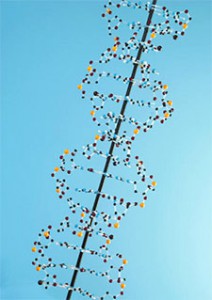
In 2013, Oscar-winning actress Angelina Jolie raised public awareness of genetic testing for cancer. Her mother died at the age of 56 after a lengthy battle with cancer, and Ms. Jolie subsequently discovered she carries a gene mutation that is a marker for increased risk of breast and ovarian cancer.
Our non-toxic immunotherapy program takes genetic predisposition toward cancer into account as part of our personalized treatments. Do you have a family history of cancer? Here is what you should know about genetic testing for cancer.
Family history review
Your doctor will begin by constructing a family tree and noting any incidence of cancer to determine possible pattern. In addition to breast, uterine and ovarian cancer, pancreatic cancer is another form that is often linked to a single mutation.
Assessment and testing
Once the family tree is complete, a determination will be made as to your personal risk of developing cancer. It’s estimated that between five and 15 percent of cancers are hereditary, but an increased risk is not a guarantee that cancer will develop. Based on the results of the assessment, your doctor may recommend genetic testing.
Emotional impact
Any consideration of a serious illness such as cancer will bring up a number of emotions. The genetic testing process includes counseling to help patients deal with the anxiety, guilt and other feelings that may arise.
Your family history, lifestyle and environment are some of the personal factors used to develop our individualized non-toxic immunotherapy program. Visit our website for more information about Issels® and our comprehensive integrative cancer treatment therapies.

One of the best way 🙂
Best Hospital in Goa